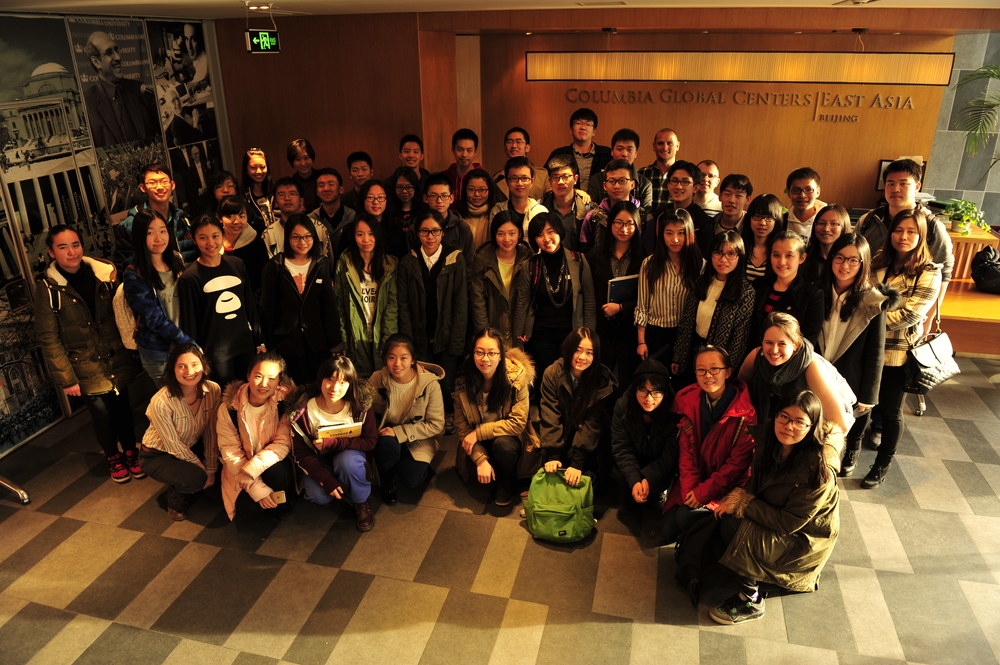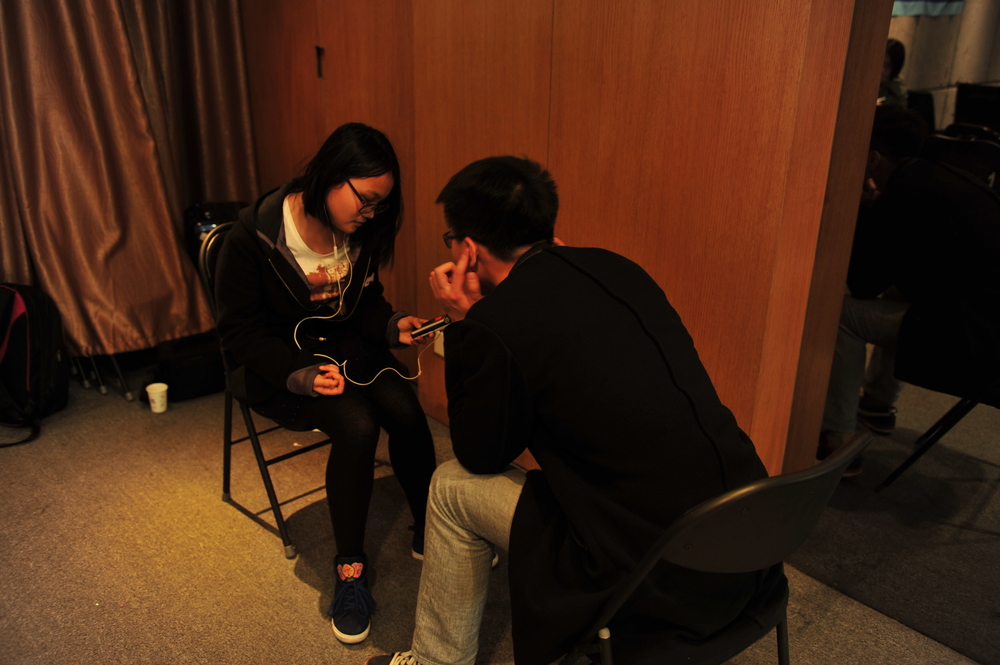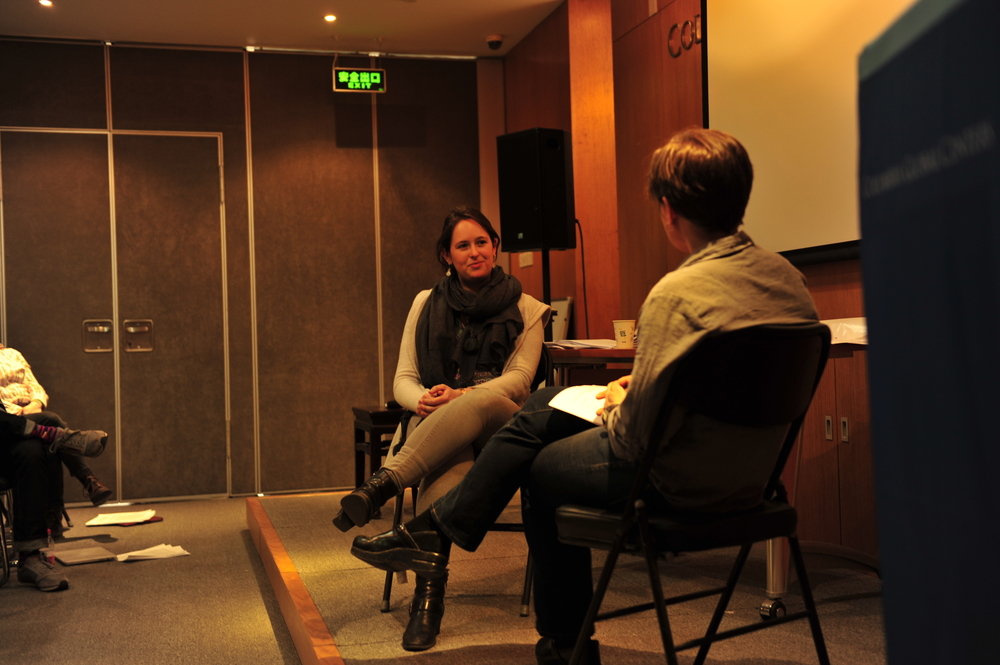Nearly Blocked by Political Concerns, Study Has Had Major Impact on Understanding of Social Factors Affecting Adolescent Health, and on Effect of Adolescent Health on Long- term Adult Well-being
Read an interview with Dr. Bearman on this landmark study
Five researchers whose determined pursuit of knowledge about the factors that influence adolescent health led to one of the most influential longitudinal studies of human health—with far-reaching and often unanticipated impacts on society—will receive the first 2016 Golden Goose Award.
The researchers are Dr. Peter Bearman, Barbara Entwisle, Kathleen Mullan Harris, Ronald Rindfuss, and Richard Udry, who worked at the University of North Carolina at Chapel Hill (UNC) in the late 1980s and early 1990s to design and execute the National Longitudinal Study of Adolescent Health, or Add Health for short.
The social scientists’ landmark, federally funded study has not only illuminated the impact of social and environmental factors on adolescent health—often in unanticipated ways—but also continues to help shape the national conversation around human health. Their work has provided unanticipated insights into how adolescent health affects wellbeing long into adulthood and has laid essential groundwork for research into the nation’s obesity epidemic over the past two decades.
The award will be announced this evening at 7:00 PM EDT at an event at the Long View Gallery in Washington, D.C. celebrating the 50th anniversary of the University of North Carolina Population Center, in conjunction with a meeting of the Population Association of America. Some of the awardees will be in attendance.
“Four bold researchers wanted to learn more about adolescent health. Who knew that one federal study would change the way doctors approach everything from AIDS to obesity?” said Rep. Jim Cooper (D-TN), who first proposed the Golden Goose Award. “Decades later, this work is still paying off, helping Americans lead longer, healthier lives. America always comes out ahead when we invest in scientific research.”
The pathbreaking nationally representative Add Health study has answered many questions about adolescent behavior, with particular attention to sexual and other risky behaviors, but it was almost stopped in its tracks by political concerns.
The study’s design grew out of the American Teenage Study, a project developed by Drs. Bearman, Entwisle, Rindfuss, and Udry. This initial adolescent sexual health study was designed to look at adolescents’ risky behaviors in a social context, rather than focusing only on individuals, in hopes of helping the nation address the growing AIDS epidemic and other public health concerns. After two years of planning work funded by the National Institutes of Health (NIH), the American Teenage Study passed peer review and was funded by the NIH in 1991. But the grant was subsequently rescinded due to objections regarding the study’s focus on sexual behaviors.
In 1993, Congress passed legislation forbidding the NIH from funding the American Teenage Study in the future, but at the same time mandating a longitudinal study on adolescent health that would consider all behaviors related to their health – implicitly including sexual behavior.
“I congratulate Dr. Rindfuss and his colleagues on this award, which underscores the vital importance of federal funding for research,” said Rep. David Price (D-NC), who was a key advocate in the House of Representatives in the 1990’s for continuing to pursue this research. “Federally supported research projects not only produce new life-saving treatments and expand our understanding of the world around us, they also spur economic growth and innovation in ways we cannot always anticipate.”
In 1994, Drs. Udry and Bearman, now joined at UNC by Dr. Harris, proposed Add Health to meet Congress’s new mandate. The new study maintained the American Teenage Study design’s strong focus on social context, but significantly expanded the scope of inquiry to include all factors influencing adolescent health.
The study has followed its original cohort for over 20 years, and it is now providing valuable information about the unanticipated impacts of adolescent health on overall wellbeing in adulthood. For this reason, the researchers recently changed the study’s name to the National Longitudinal Study of Adolescent to Adult Health, and it is a landmark example of how longitudinal research can yield extraordinary and unexpected insights.
"Science often advances our understanding of the world in ways we could never have foreseen,” Rep. Bob Dold (R-IL) said. "Regardless of how this research began, it has served as a breakthrough for understanding the way society molds our personal health. That’s why congressional funding and support for breakthrough research is so important to push us forward as a country.”
The nationally representative sample and multifaceted longitudinal data paired with a revolutionary open-access model have enabled more than 10,000 researchers to publish almost 3,000 research articles on human health. These scientific studies have strengthened an understanding of the importance of family connectedness to adolescent health, allowed researchers to track and scrutinize the rising tide of the obesity epidemic, and demonstrated the social, behavioral, and biological importance of adolescence to lifelong health and wellbeing
What began as a study driven both by social science curiosity and public-health concerns has been central to shaping the national conversation around adolescent health for more than two decades.
The Golden Goose Award honors scientists whose federally funded work may have seemed odd or obscure when it was first conducted but has resulted in significant benefits to society. Drs. Bearman, Entwisle, Harris, Rindfuss and Udry are being cited for their extraordinary multidisciplinary, longitudinal study of the social and biological factors that influence adolescent health, and their work’s wide-ranging and often unexpected impacts on society.
The five researchers will be honored with two other teams of researchers – yet to be named – at the fifth annual Golden Goose Award Ceremony at the Library of Congress on September 22. Descriptions of the past winners can be found at the Golden Goose Award website.
About the Golden Goose Award
The Golden Goose Award is the brainchild of Rep. Jim Cooper, who first had the idea for the award when the late Senator William Proxmire (D-WI) was issuing the Golden Fleece Award to target wasteful federal spending and often targeted peer-reviewed science because it sounded odd. Rep. Cooper believed such an award was needed to counter the false impression that odd- sounding research was not useful.
In 2012, a coalition of business, university, and scientific organizations created the Golden Goose Award. Like the bipartisan group of Members of Congress who support the Golden Goose Award, the founding organizations believe that federally funded basic scientific research is the cornerstone of American innovation and essential to our economic growth, health, global competitiveness, and national security. Award recipients are selected by a panel of respected scientists and university research leaders.
Golden Goose Award Founding Organizations:
American Association for the Advancement of Science (AAAS) Association of American Universities (AAU)
Association of Public and Land-grant Universities (APLU) Breakthrough Institute
Progressive Policy Institute (PPI) Richard Lounsbery Foundation The Science Coalition (TSC)
Task Force on American Innovation
United for Medical Research
Golden Goose Award Congressional Supporters
Representative Jim Cooper Representative Suzanne Bonamici Senator Christopher Coons
Representative Charlie Dent Representative Bob Dold Representative Donna F. Edwards
Representative Randy Hultgren
Golden Goose Award 2016 Sponsors
Benefactor Elsevier Partner
United for Medical Research
Contributors
American Mathematical Society
American Physical Society
Association of American Medical Colleges
Supporters
American Astronomical Society
American Physiological Society
Consortium of Social Science Associations
Texas Instruments
















